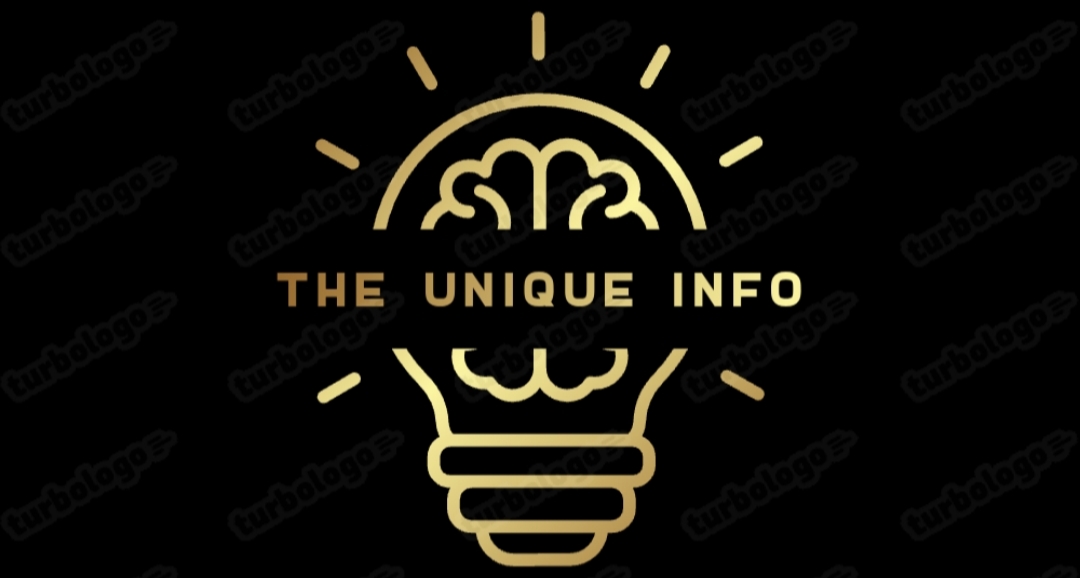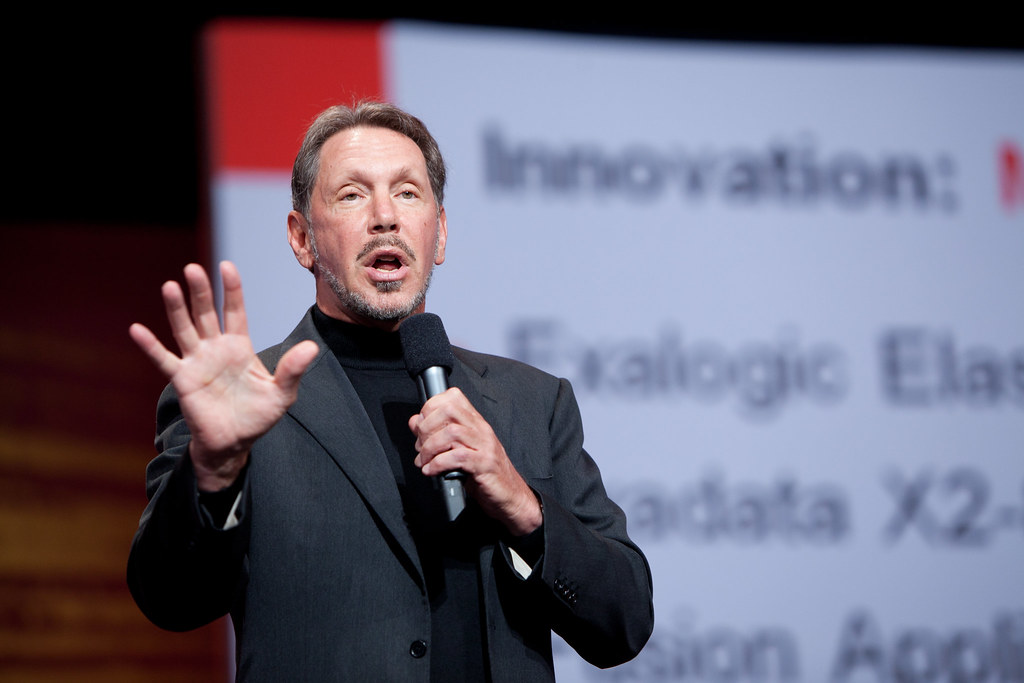When you think of tech giants who’ve shaped the modern world, names like Steve Jobs, Bill Gates, or Elon Musk might come to mind. But there’s another name that deserves a spot in that elite group: Larry Ellison. As the co-founder of Oracle Corporation, Ellison turned a small startup into a global powerhouse that changed how businesses manage data. With a net worth hovering around $182 billion as of January 2025, he’s one of the world’s richest people, ranking fourth globally according to Bloomberg. But his story isn’t just about money—it’s about grit, ambition, and a relentless drive to win. Let’s dive into the life of Larry Ellison, from his humble beginnings to his lavish lifestyle, and explore why he’s a true American success story.
𝗘𝗮𝗿𝗹𝘆 𝗟𝗶𝗳𝗲: 𝗔 𝗥𝗼𝗰𝗸𝘆 𝗦𝘁𝗮𝗿𝘁 𝗶𝗻 𝘁𝗵𝗲 𝗕𝗿𝗼𝗻𝘅
Larry Ellison’s life began in New York City’s Bronx on August 17, 1944. Born to a 19-year-old single mother, Florence Spellman, of Jewish heritage, Ellison faced challenges from the start. His biological father, an Italian-American U.S. Army Air Corps pilot, was stationed abroad and never part of his life. When Larry was just nine months old, he contracted pneumonia, and his mother, unable to care for him, gave him up for adoption to her aunt and uncle, Lillian and Louis Ellison, in Chicago’s South Side.
Growing up in a modest two-bedroom apartment, Larry’s childhood was far from glamorous. His adoptive father, Louis, a Russian immigrant who lost his real estate business during the Great Depression, was often distant and critical, telling young Larry he’d never amount to anything. Despite this, Larry was close to his adoptive mother, Lillian, who provided emotional support. He didn’t learn he was adopted until age 12, a revelation that shaped his independent streak. Raised in a religious Jewish household, Larry attended synagogue but grew skeptical of organized religion, even refusing a bar mitzvah at 13.
Ellison showed early promise in math and science, excelling at Chicago’s Eugene Field Elementary and Sullivan High School. He enrolled at the University of Illinois at Urbana-Champaign in 1962 as a pre-med student and was named science student of the year. But tragedy struck during his sophomore year when Lillian died, leading him to drop out. He briefly attended the University of Chicago in 1966, studying physics and mathematics, where he first encountered computer design. Yet, restless and uninterested in traditional education, he left after one semester and headed to Berkeley, California, with little money but big dreams.
𝗧𝗵𝗲 𝗥𝗼𝗮𝗱 𝘁𝗼 𝗢𝗿𝗮𝗰𝗹𝗲: 𝗙𝗿𝗼𝗺 𝗣𝗿𝗼𝗴𝗿𝗮𝗺𝗺𝗲𝗿 𝘁𝗼 𝗘𝗻𝘁𝗿𝗲𝗽𝗿𝗲𝗻𝗲𝘂𝗿
In California, Ellison bounced between jobs at companies like Wells Fargo and Amdahl Corporation, honing his skills as a computer programmer. By 1973, he was at Ampex, working alongside Bob Miner and Ed Oates. There, he contributed to a database project for the CIA, codenamed “Oracle.” This experience sparked a vision that would change his life—and the tech world.
Inspired by a 1970 paper by British computer scientist Edgar F. Codd on relational databases—a system for organizing data into tables for efficient storage and retrieval—Ellison saw untapped commercial potential. In 1977, with just $2,000, he, Miner, and Oates founded Software Development Laboratories (SDL) to pursue this idea. Their first big break came with a contract to build a database for the CIA, followed by the release of Oracle in 1979, the first commercial relational database using Structured Query Language (SQL). Renamed Relational Software Inc. and later Oracle Systems Corporation in 1982, the company grew rapidly, going public in 1986.
Oracle’s early success wasn’t without hiccups. In 1990, an internal audit revealed accounting irregularities—salespeople had inflated earnings by booking future sales in the current quarter, a practice Ellison later called “an incredible business mistake.” The company teetered on the brink of bankruptcy, and its stock plummeted. But Ellison’s leadership shone through. He restructured management, refreshed Oracle’s product line, and by 1992, Oracle 7’s release cemented the company as the world’s leading database-management firm.
𝗕𝘂𝗶𝗹𝗱𝗶𝗻𝗴 𝗮𝗻 𝗘𝗺𝗽𝗶𝗿𝗲: 𝗢𝗿𝗮𝗰𝗹𝗲’𝘀 𝗥𝗶𝘀𝗲 𝘁𝗼 𝗗𝗼𝗺𝗶𝗻𝗮𝗻𝗰𝗲
Under Ellison’s leadership, Oracle didn’t just survive—it thrived. By 1987, it was the largest database-management company globally, capitalizing on the growing need for businesses to manage data efficiently. Ellison’s vision extended beyond databases. In the mid-1990s, he bet big on the internet, developing web-compatible products that gave Oracle a competitive edge. While his attempt to disrupt Microsoft with the Network Computer (NC)—a low-cost alternative to PCs relying on cloud-like servers—fell short due to timing and market dynamics, it showcased his forward-thinking approach.
Ellison’s aggressive acquisition strategy further fueled Oracle’s growth. Starting in the 2000s, Oracle acquired dozens of companies, including PeopleSoft ($10.3 billion in 2005), Siebel ($5.85 billion in 2006), BEA ($8.5 billion in 2008), Sun Microsystems ($7.4 billion in 2010), and Cerner ($28.3 billion in 2021). These moves expanded Oracle’s portfolio into enterprise software, cloud computing, and hardware, positioning it as the second-largest software company behind Microsoft. By 2024, Oracle reported $53 billion in revenue and a market cap exceeding $435 billion.
Ellison stepped down as CEO in 2014 but remains chairman and chief technology officer, owning about 40% of the company. His wealth, tied largely to Oracle stock, has made him a billionaire many times over. In 2024 alone, Oracle’s stock rose over 50%, outpacing rivals like Amazon and Microsoft, boosting his net worth significantly.
𝗕𝗲𝘆𝗼𝗻𝗱 𝗢𝗿𝗮𝗰𝗹𝗲: 𝗩𝗲𝗻𝘁𝘂𝗿𝗲𝘀 𝗮𝗻𝗱 𝗖𝗼𝗻𝘁𝗿𝗼𝘃𝗲𝗿𝘀𝗶𝗲𝘀
Ellison’s influence extends far beyond Oracle. A close friend of Elon Musk, he served on Tesla’s board from 2018 to 2022, holding a 1.4% stake. He’s also invested in Salesforce, mentored its founder Marc Benioff, and partnered with Musk’s SpaceX in 2024 to develop an AI-powered farming tool. In January 2025, Ellison joined OpenAI’s Sam Altman and Softbank’s Masayoshi Son at the White House to announce The Stargate Project, a major AI initiative, earning him the nickname “CEO of Everything” from then-President-elect Donald Trump.
Ellison’s competitive streak shines in his passion for sailing. He founded Oracle Team USA, which won the America’s Cup in 2010 and 2013, the latter after a stunning 8-1 comeback against New Zealand, called “one of the greatest comebacks in sports history.” In 2019, he launched SailGP, a global racing series using high-speed F50 catamarans, funding it for five years until it became self-sustaining.
However, Ellison’s career hasn’t been without controversy. His aggressive business tactics, including public feuds with rivals like Informix’s Phil White, earned him a polarizing reputation. In 2022, reports surfaced of his involvement in a post-2020 election conference call discussing unfounded voter fraud claims, alongside figures like Sean Hannity. In 2019, a $1 billion lawsuit accused him of supporting actions against Palestinians, though it was dismissed in 2024. He also faced criticism for allegedly lobbying for Israeli interests, including offering a job to Benjamin Netanyahu in 2021.
𝗣𝗲𝗿𝘀𝗼𝗻𝗮𝗹 𝗟𝗶𝗳𝗲: 𝗔 𝗟𝗮𝗿𝗴𝗲𝗿-𝗧𝗵𝗮𝗻-𝗟𝗶𝗳𝗲 𝗣𝗲𝗿𝘀𝗼𝗻𝗮
Ellison’s personal life is as colorful as his professional one. Married four times—Adda Quinn (1967–1974), Nancy Wheeler Jenkins (1977–1978), Barbara Boothe (1983–1986), and Melanie Craft (2003–2010)—he has two children, David and Megan, both film producers behind hits like The Terminator and Zero Dark Thirty. A licensed pilot, Ellison owns fighter jets and has a passion for Japanese culture, reflected in his $110 million Woodside, California, estate modeled after a 16th-century Japanese village.
His real estate portfolio is staggering. In 2012, he bought 98% of Hawaii’s Lanai island for $300 million, where he moved permanently in 2020, working remotely via Zoom. He owns properties in San Francisco, Malibu, Lake Tahoe, Rhode Island, and Japan, though his Malibu home was destroyed in a wildfire. Once the owner of the 453-foot yacht Rising Sun, he sold it to David Geffen in 2010.
Ellison’s lavish lifestyle has drawn scrutiny. In 2002, his accountant warned that his spending was unsustainable, but Ellison’s wealth has only grown. Despite his flamboyance, he’s committed to philanthropy, signing the Giving Pledge in 2010 to donate 95% of his wealth. He’s given hundreds of millions to medical research, including $200 million to USC’s Ellison Institute for Transformative Medicine and $500,000 to fortify a community center in Sderot, Israel. However, a 2006 pledge of $115 million to Harvard was withdrawn after a leadership change.
𝗟𝗲𝗴𝗮𝗰𝘆 𝗮𝗻𝗱 𝗜𝗺𝗽𝗮𝗰𝘁: 𝗔 𝗧𝗲𝗰𝗵 𝗣𝗶𝗼𝗻𝗲𝗲𝗿’𝘀 𝗘𝗻𝗱𝘂𝗿𝗶𝗻𝗴 𝗜𝗻𝗳𝗹𝘂𝗲𝗻𝗰𝗲
Larry Ellison’s journey from a college dropout to one of the world’s richest and most influential tech leaders is a testament to his vision and tenacity. Oracle’s relational database technology revolutionized how businesses—from banks to coffee shops—manage data, laying the foundation for the digital age. His early embrace of the internet and cloud computing kept Oracle ahead of the curve, while his bold acquisitions ensured its dominance.
Ellison’s personality—part genius, part provocateur—has made him a polarizing figure. Critics point to his ruthless tactics and controversial statements, like his 2013 criticism of NSA whistleblower Edward Snowden. Yet, admirers see a visionary who turned a $2,000 investment into a tech empire, inspiring entrepreneurs like Marc Benioff and aligning with innovators like Musk and Altman.
At 80, Ellison shows no signs of slowing down. His involvement in AI, through projects like Stargate, and his continued leadership at Oracle keep him at the forefront of technology. His passion for winning, evident in his quote, “I’m addicted to winning. The more you win, the more you want to win,” drives his relentless pursuit of excellence.
𝗪𝗵𝘆 𝗟𝗮𝗿𝗿𝘆 𝗘𝗹𝗹𝗶𝘀𝗼𝗻 𝗠𝗮𝘁𝘁𝗲𝗿𝘀 𝘁𝗼 𝗔𝗺𝗲𝗿𝗶𝗰𝗮𝗻𝘀
For U.S. audiences, Ellison’s story is quintessentially American. He embodies the rags-to-riches narrative, rising from a challenging childhood to unimaginable wealth through hard work and innovation. His contributions to technology have powered American businesses, from small startups to Fortune 500 companies, making Oracle a backbone of the economy. His philanthropy, particularly in healthcare, impacts millions, while his sailing victories have brought pride to the U.S. on the global stage.
Yet, Ellison’s story also sparks debate. His lavish lifestyle and controversial political ties raise questions about wealth and influence in America. Is he a visionary hero or a ruthless capitalist? The answer likely lies in between, but his impact is undeniable.
𝗖𝗼𝗻𝗰𝗹𝘂𝘀𝗶𝗼𝗻: 𝗧𝗵𝗲 𝗢𝗿𝗮𝗰𝗹𝗲 𝗼𝗳 𝗦𝘂𝗰𝗰𝗲𝘀𝘀
Larry Ellison’s life is a saga of ambition, innovation, and resilience. From building databases for the CIA to owning a Hawaiian island, he’s lived a life most can only dream of. Oracle’s success has made him a billionaire, but it’s his ability to adapt, take risks, and push boundaries that defines his legacy. Whether he’s racing yachts, buying islands, or shaping the future of AI, Ellison remains a force to be reckoned with—a true titan of tech.
For those inspired by his story, Ellison’s journey reminds us that success often comes from defying the odds, embracing bold ideas, and never giving up. As he once said, “When people start telling you that you’re crazy, you just might be on to the most important innovation in your life.” For Larry Ellison, that mindset turned a vision into an empire.

